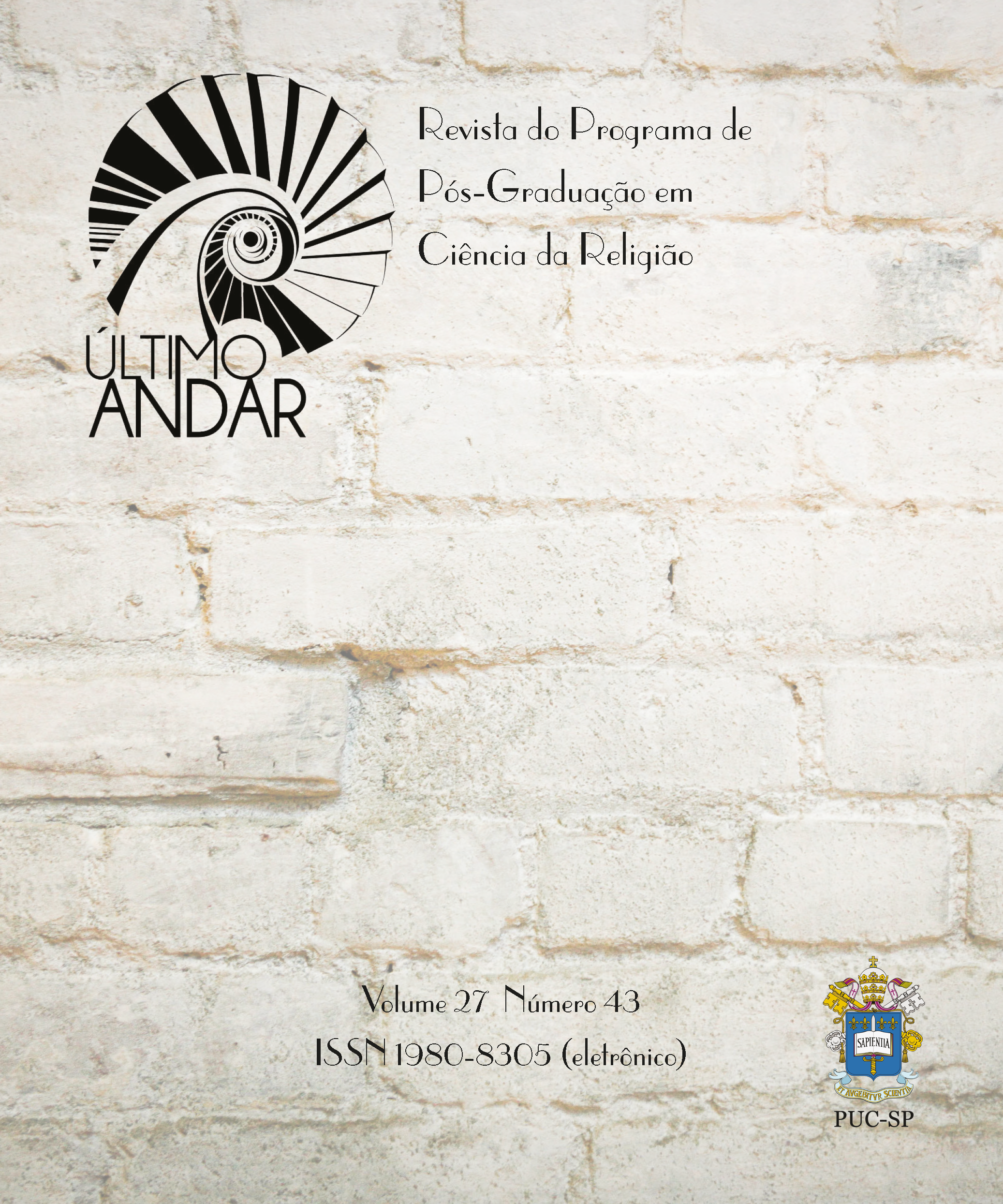Violência e necropoder
a transformação do discurso inquisitorial no mundo contemporâneo
DOI:
https://doi.org/10.23925/ua.v27i43.e65515Palavras-chave:
Discurso inquisitorial, tempo presente, ethos socialResumo
Esta pesquisa tem por objetivo abordar como o modelo do discurso inquisitorial com o passar dos tempos desde sua gênese até o tempo presente se remodelou passivamente e ativamente ao longo do processo de construção histórico nas tessituras da sociedade. Sua problematização se situa em tratar, qual a possível gênese do processo de discurso inquisitorial? Quando ocorreu o discurso da inquisição de fato e de direito? Quais as múltiplas facetas contemporâneas que o discurso da inquisição possui? A fim de responder essas assertivas, o procedimento metodológico utilizado foi a pesquisa de cunho bibliográfico, cujos aportes teóricos consistem em se delinear por alicerces cognitivos das áreas da história, sociologia, entre outras. Como resultados alcançados da pesquisa, percebe-se que o discurso inquisitorial, foi se cristalizando no Ethos social quer seja, patente e latentemente, originando atos de violência, tortura e morte para quem possui vieses heterógenos de suas proposituras, cuja premissa dessas ações se faz cada vez mais presente no mundo contemporâneo.
Referências
ARENDT, Hannah. As Origens do Totalitarismo: Antissemitismo, Imperialismo, totalitarismo. São Paulo: Companhia do Bolso, 2009.
BENNAZI, Natale; D’AMICO, Matteo. Ll Libro Nero Dell’ Inquisizione. 9. ed. Milão: Piemme, 2002.
BOURDIEU. Pierre. O Poder Simbólico. Lisboa: Difel, 1989.
BRECHT, Bertold. Um Homem é Um Homem. São Paulo: Autêntica, 2007.
BUENO, Francisco da Silva. Grande Dicionário Etimológico-prosódico da Língua Portuguesa. v.6. São Paulo: Saraiva, 1968.
CÁRCEL, Ricardo Garcia. L’inquisizione. Milão: Fenice, 2000.
CHOMSKY, Noam. Novas e Velhas Ordens Mundiais. São Paulo: Scritta, 1996.
DUBY, Georges. História da Vida Privada: Da Europa Feudal à Renascença. São Paulo: Cia das Letras, 1992.
HENRICHE, Kramer; SPINGER, James. O Martelo das Bruxas: Malleus Maleficarium. São Paulo: Rosa dos Ventos, 1991.
IRVIN, Dale T.; SUNQUIST, Scott W. História do Movimento Cristão Mundial. São Paulo: Paulus, 2004.
KRUGMAN, Paul. Por que o Negacionismo Viral Lembra o Climático. Revista Exame: 25 de Abril de 2020.
LAMBERT, Malcolm. Heresia Medieval: Movimentos Populares da Reforma Gregoriana à Reforma. 3. Ed. Nova York: Wiley-Blackwell, 2002.
NAZÁRIO, Luiz. Autos-de-fé Como Espetáculos de Massa. São Paulo: Humanitas, 2005.
NOVISNKY, Anita. A Inquisição. Coleção tudo é História vol. 49. São Paulo: Brasiliense, 1985.
PERON, Isadora. Discurso do Ódio Deve Ser Responsabilizado. Brasília: Valor, 2020.
POTIGUAR, Alex. Liberdade de Expressão e o Discurso do Ódio: A luta pelo reconhecimento da igualdade como direito a diferença, Brasília: Consulex, 2012.
REZENDE, Maria José. A Ditadura Militar no Brasil: Repressão e pretensão de legitimidade (1964-1985). Londrina: Eduel, 2013.
RUSCONI, Carlo. Dicionário de Grego do Novo Testamento. São Paulo: Paulus, 2005.
SALLMAN, Jean Michel. As bruxas, As Noivas de Satã. Rio de Janeiro: Objetiva, 2002.
SILVA, Samantha. Liberdade de Expressão e o Discurso do Ódio. São Paulo: Revista dos Tribunais, 2009.
SLAJOV, Zizek. Violência: Seis reflexões laterais. São Paulo: Boitempo, 2014.
TILLEY, Maureen A. The Bible in Christian Noth Africa. Minneapolis: Fortress, 1997.
TUCCI, José Rogério Cruz; AZEVEDO, Luiz Carlos de. Lições de História do Processo Civil Romano. São Paulo: Revista do Tribunais, 2001.
WEBER, Marx. Ciência e Política e duas Vocações. 18. ed. São Paulo: Cultrix, 2011.
WOLTON, Domenic. Informar não é comunicar. Porto Alegre: Meridional, 2011.
Downloads
Publicado
Como Citar
Edição
Seção
Licença
Copyright (c) 2024 JOSE FABIO BENTES VALENTE

Este trabalho está licenciado sob uma licença Creative Commons Attribution-NonCommercial 4.0 International License.
Autores que publicam nesta revista concordam com os seguintes termos:
- Autores mantém os direitos autorais e concedem à revista o direito de primeira publicação, com o trabalho simultaneamente licenciado sob a Licença Creative Commons Attribution que permite o compartilhamento do trabalho com reconhecimento da autoria e publicação inicial nesta revista.
- Autores têm autorização para assumir contratos adicionais separadamente, para distribuição não-exclusiva da versão do trabalho publicada nesta revista (ex.: publicar em repositório institucional ou como capítulo de livro), com reconhecimento de autoria e publicação inicial nesta revista.
- Autores têm permissão e são estimulados a publicar e distribuir seu trabalho online (ex.: em repositórios institucionais ou na sua página pessoal) a qualquer ponto antes ou durante o processo editorial, já que isso pode gerar alterações produtivas, bem como aumentar o impacto e a citação do trabalho publicado.


